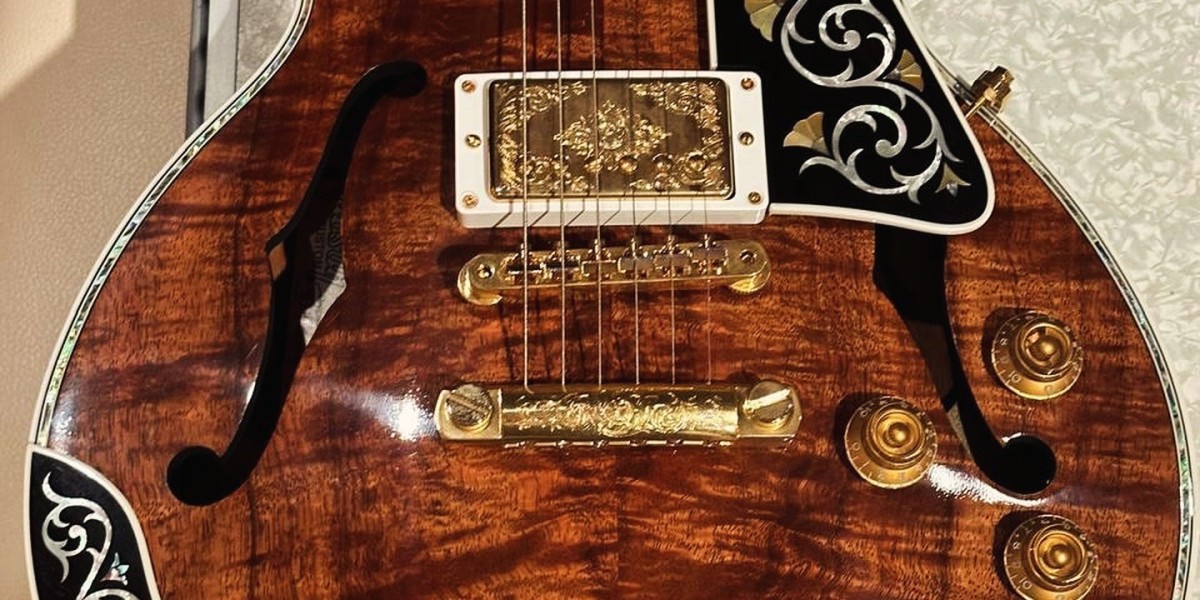The guitar is more than just an instrument; it’s an expression of soul, personality, and style. From rock legends to classical maestros, the guitar has connected people across generations, blending rhythm and emotion to create a truly unique art form. This blog dives into the heart and soul of the guitar, exploring its impact, its versatility, and why it continues to captivate musicians and audiences alike.
The Evolution of Guitar: From Classical Roots to Modern Rock
The guitar’s history is as rich and diverse as its sound. Originating from ancient string instruments like the lute and the oud, the guitar evolved significantly over centuries. The classical guitar, with its nylon strings and warm tones, paved the way for Spanish flamenco and later jazz, blues, and rock music. Electric guitars emerged in the 20th century, amplifying the instrument’s reach and leading to legendary styles that define modern music today.
Why Guitar Strikes a Chord with So Many
- Accessibility: Unlike many instruments, guitars are relatively affordable and easy to learn, making them popular among beginners and experienced players.
- Versatility: From acoustic to electric, from jazz to metal, the guitar can adapt to virtually any genre, mood, or setting.
- Portability: Whether you’re strumming on a beach or performing on stage, the guitar’s portability makes it a go-to for musicians on the move.
- Emotional Connection: Playing the guitar engages both mind and body, creating a profound emotional experience for both the musician and the audience.
Different Styles of Guitar and Their Unique Flavors
Acoustic Guitar: Raw and Resonant
The acoustic guitar’s natural, warm tone is perfect for intimate settings and genres like folk, blues, and country. The simplicity of acoustic playing allows musicians to connect deeply with the melody, emphasizing lyrical storytelling and soft harmonies.
Electric Guitar: Amplifying Attitude
The electric guitar revolutionized music with its powerful, amplified sound, allowing players to create unique effects and sounds. It's central to rock, metal, and jazz, giving birth to icons like Jimi Hendrix and Slash, who took guitar playing to extraordinary levels with their innovative techniques.
Classical Guitar: Elegance and Technique
Classical guitar, typically played with nylon strings, embodies intricate fingerstyle techniques and classical music compositions. It has a more subdued, mellow sound and requires a high degree of precision, lending itself to genres like classical, flamenco, and Latin music.
The Art of Guitar Playing: Techniques that Shape the Sound
- Fingerpicking: Popular in folk, classical, and jazz, fingerpicking involves plucking strings individually, creating a harmonious and layered sound.
- Strumming: Often used in pop and rock, strumming is rhythmic and full-bodied, perfect for singing along or creating energetic, pulsing beats.
- Tapping: Made famous by guitar legends like Eddie Van Halen, tapping involves using both hands on the fretboard to create rapid notes, adding a unique flair to solos.
- Slide: Used in blues and country, slide guitar involves gliding a metal or glass slide along the strings, producing a smooth, vocal-like sound.
The Role of Guitar in Modern Music
Guitars remain a staple in almost every music genre. From the raw, acoustic strumming in indie folk to the intense, electric solos in rock and metal, guitarists shape the core of musical expression. The versatility and impact of the guitar mean that each player brings their unique style and interpretation, creating endless possibilities in music.
How to Start Your Own Guitar Journey
- Choose the Right Guitar: Decide whether you prefer acoustic, electric, or classical. Each has a unique sound, and the choice will shape your musical path.
- Take Lessons: Online platforms and local instructors can guide you through the basics and beyond.
- Practice Regularly: Like any art, mastering the guitar requires dedication. Consistent practice hones your skills and helps you find your style.
- Experiment with Genres: Trying different music styles broadens your skill set and helps you discover your musical identity.
Famous Guitarists Who Defined the Art
- Jimi Hendrix: Known for his revolutionary electric guitar techniques, Hendrix’s influence is unparalleled in the rock genre.
- Eric Clapton: A master of blues-rock, Clapton’s soulful playing style has inspired generations.
- Paco de Lucía: One of the greatest flamenco guitarists, de Lucía brought flamenco to international audiences with his powerful and emotional performances.
- Andrés Segovia: Often credited as the father of modern classical guitar, Segovia elevated guitar’s status in classical music.
The Guitar as an Extension of the Soul
The beauty of guitar lies in its ability to channel emotion, capturing the heart and soul of its player. From gentle ballads to intense solos, the guitar resonates with the essence of the musician’s spirit. Each note, strum, and chord is a brushstroke on the canvas of music, painting a picture that words alone cannot convey.
Conclusion: Embracing the Art of Guitar
Whether you’re a seasoned musician or a newcomer, the guitar is an invitation to explore, express, and connect. It’s a companion on the journey of self-expression, allowing you to translate thoughts and emotions into music. So pick up a guitar, let the strings guide you, and discover the art that has inspired generations to find their own unique sound.







